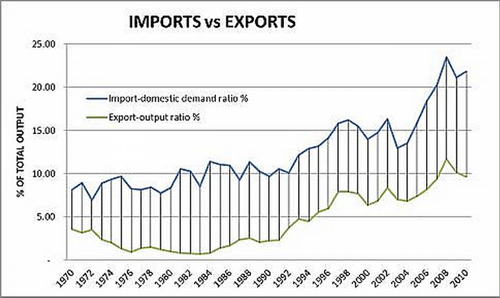
Top stories






More news

Marketing & Media
Warner Bros. was “nice to have” but not at any price, says Netflix

Logistics & Transport
Maersk reroutes sailings around Africa amid Red Sea constraints
















However, the industry is also facing challenges. Technological upgrading is proving to be difficult because it requires high capital input. Due to the nature of plastics manufacturing, industries are not in close proximity to the markets they supply making them vulnerable to increased delivery costs. The industry is also facing a skills shortage.
Plastics manufacturing contributes approximately 0.5% to South Africa's GDP and 3.2% to the manufacturing sector. The sector has an estimated annual turnover of R35-billion.
Industry growth has been impressive, with an overall average annual rate of 5.5% increase over the five-year period to 2008 and cumulative sales of R175-billion for the same period.
The sector employs over 63 000 people, representing 3.4% of employment in the manufacturing sector in South Africa. The export value of plastic products in 2010 was R2.4-billion compared to an import value of R7-billion, resulting in a trade deficit of R4.6-billion.
The recent lowering of import tariffs on polymers and other inputs will contribute towards more competitive input prices and there are opportunities in:
The threats facing the industry include import parity pricing of polymers and other key inputs are becoming more efficient and cheaper. This means that the price charged for a domestically produced product is set equal to the domestic price of an equivalent imported good.
New innovations are constantly changing the production process, which could result in manufacturers not keeping up with changing trends. In addition, logistic costs, due to South Africa's geographic position, continue to increase. Due to insufficient research and development, the plastics market could lose its advantage.
Polymer production is one area of potential expansion. South Africa exports significant tonnages of polymers according to Plastics SA. But the country still imports greater amounts of polymer intermediaries, such as polystyrene, which is not manufactured locally.

Most plastic companies in South Africa are small, with over 800 of the approximately 2000 companies involved in the plastics converting sector. But as a whole, this industry is seen as a lower-than-average credit risk.
Plastics manufacturing in South Africa is regulated by Plastics SA (previously known as the Plastics Federation of South Africa) an association not for gain. The Plastics SA Board comprises of: Safripol, Sasol Polymers, Hosaf - raw material suppliers and importers, PCA (Plastics Converters Association of SA), ARMSA (Association of Rotational Moulders of South Africa), PISA (Plastics Institute of Southern Africa), EPSASA (Expanded Polystyrene Association of South Africa) and SAPPMA (South African Plastic Pipe Manufacturers Association).